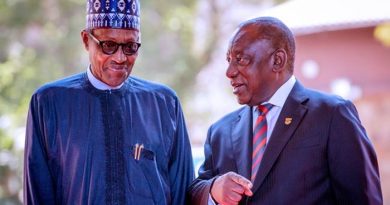Nigeria needs $410bn for energy transition – Osinbajo
Nigerian needs at least $410 billion to deliver the energy transition plan, Vice President Yemi Osinbajo made this revelation today while launching Nigeria’s Energy Transition Plan (NETP).
According to him, the country spending translated to about $10 billion per year.
He declared that the average $3 billion per year investments in renewable energy recorded for the whole of Africa between 2000 and 2020 would certainly not suffice.
He said: “The plan (NETP) was designed to tackle the issue of energy crisis and climate change and deliver Sustainable Development Goals (SDG) 7 by 2030 and net zero by 2060, while centring the provision of energy for development, industrialization and economic growth.
“We anchored the plan on key objectives, including lifting 100 million people out of poverty in a decade, thriving economic growth, bringing modern services to the full population and managing the expected long-term job loss in the oil sector due to global decarbonisation,” the vice president said.
He added that the plan hoped to make use of natural gas in the short term to facilitate the establishment of baseload energy capacity and address the nation’s clean cooking deficit in the form of liquefied petroleum gas.
“The plan envisions vibrant industries powered by low carbon technologies, streets lined with electric vehicles, and livelihoods enabled by sufficient and clean energy. The plan has the potential to create 340,000 jobs by 2030 and 840,000 jobs by 2060,” he said.
Also at the event, organised by the Sustainable Energy for All (SEforALL), the Minister of Finance, Budget and Planning, Zainab Ahmed, noted that the energy transition plan was quite ambitious and required donor funding.
Ahmed said, “According to the plan, delivering Nigeria’s net zero target requires spending $1.9 trillion up to 2060, including $410 billion above business as usual. This additional financial requirement breaks down to $150bn net expense on improving generation capacity, and $135bn on building transmission and distribution infrastructure.
“$79bn on developing clean cooking solutions, $21bn on decarbonising industries and $12bn on transport, and another $12bn on oil and gas decarbonisation. We will need to crowd in $10bn annually till 2060 to deliver the additional funding required for the implementation of the project.”
The minister said access to finance was a challenge, and that was why the G7 leaders announced the sum of $8.5m for South Africa’s energy transition from coal at the 2021 United Nations Climate Change Conference, more commonly referred to as COP26.




